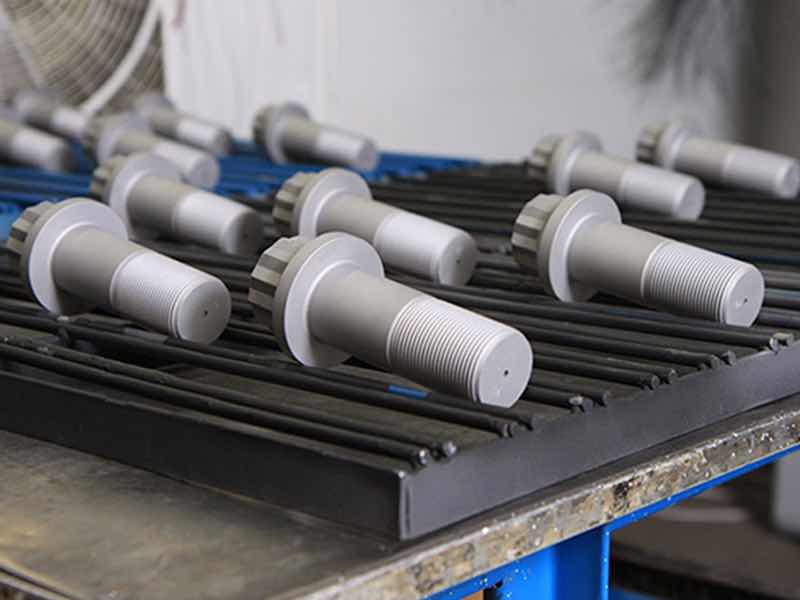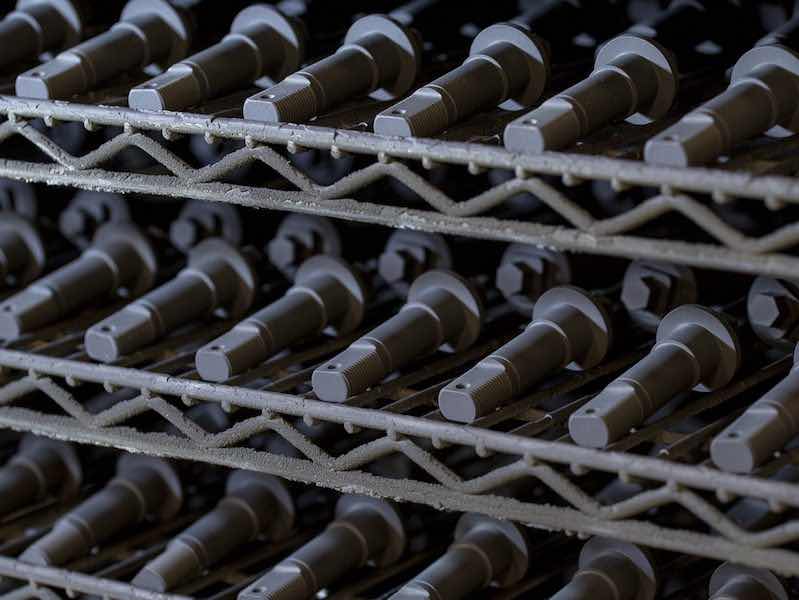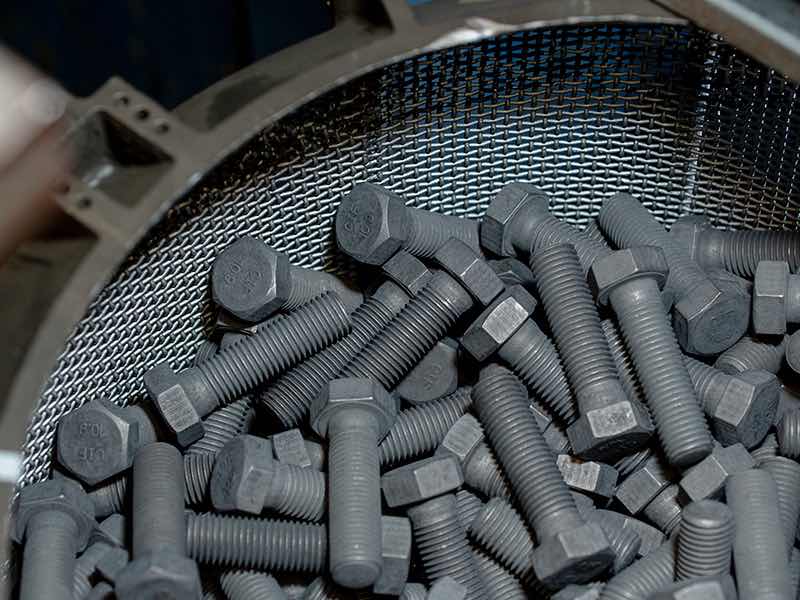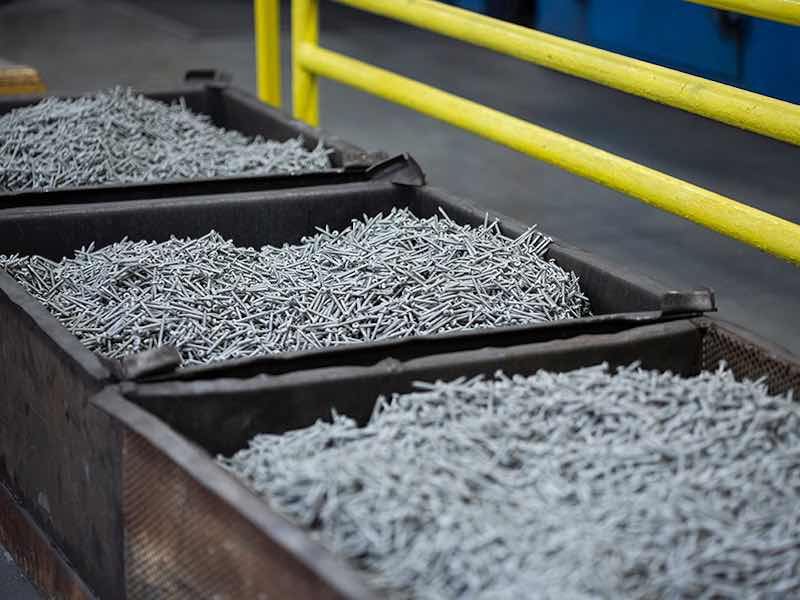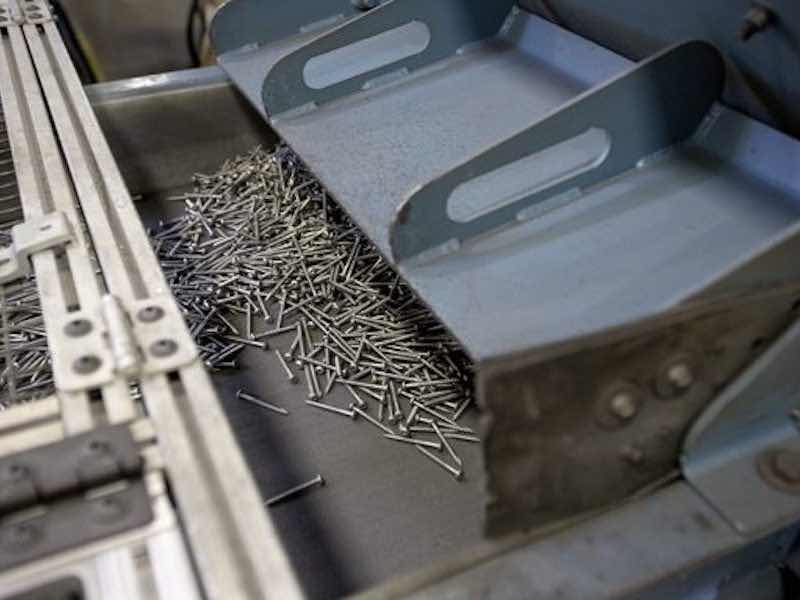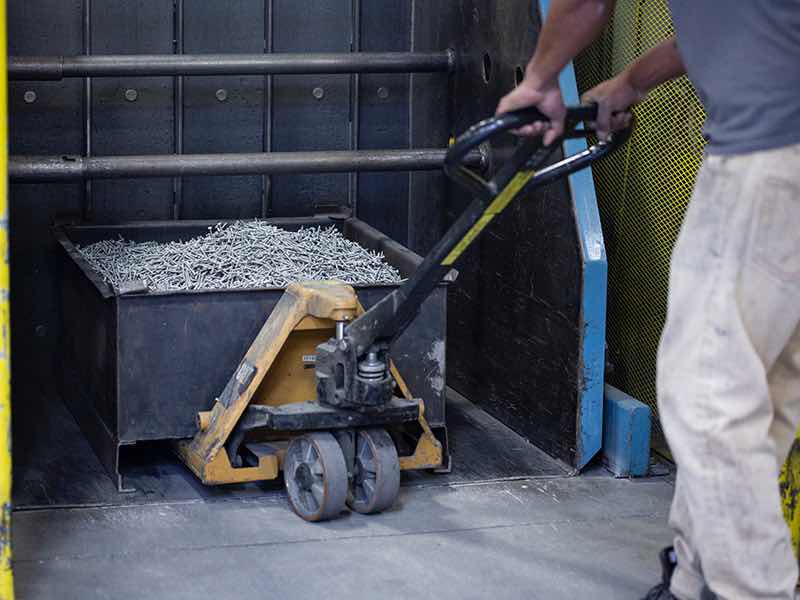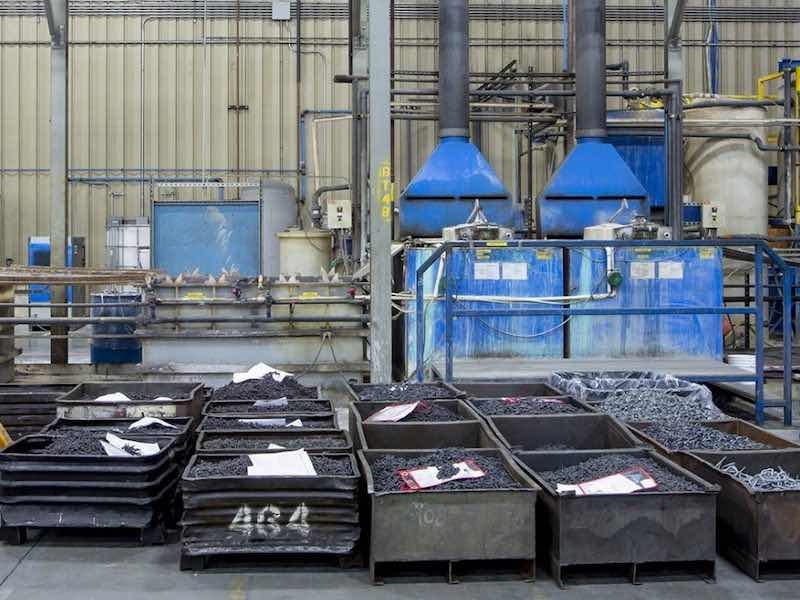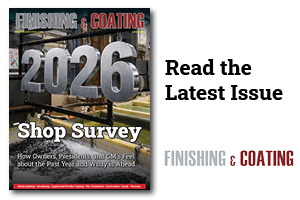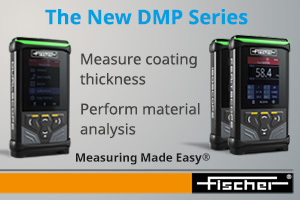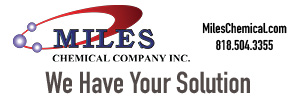Like many relationships, John Warne is in love with zinc-rich coatings, but that doesn’t mean he isn’t interested in seeing other finishes.
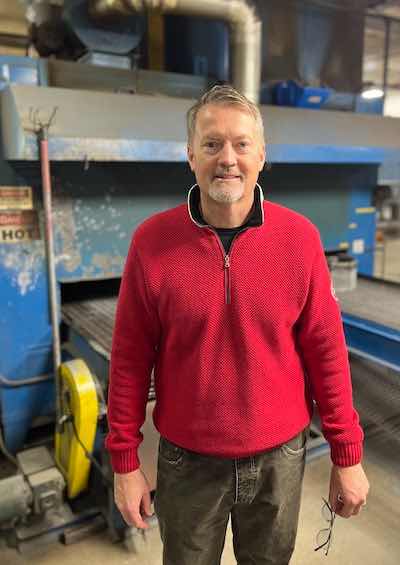 John Warne is CEO of RIE Coatings that has locations in Eden Valley, Minnesota, and in Dubuque, Iowa.The CEO of RIE Coatings has locations in Eden Valley, Minnesota, and in Dubuque, Iowa, and coats billions of fasteners, bolts, nuts, and other major components for the agriculture, wind and solar, recreation, military, and heavy equipment industries.
John Warne is CEO of RIE Coatings that has locations in Eden Valley, Minnesota, and in Dubuque, Iowa.The CEO of RIE Coatings has locations in Eden Valley, Minnesota, and in Dubuque, Iowa, and coats billions of fasteners, bolts, nuts, and other major components for the agriculture, wind and solar, recreation, military, and heavy equipment industries.
Warne says their bread-and-butter is expertise in helping OEMs move from traditional zinc plating or galvanizing to thin film protective coatings. But RIE wants to increase its offerings through acquisitions to provide even more finishers to existing and prospective customers.
Additional Industry Finishing Nuance
“We definitely want to add platforms, aside from zinc-rich coating opportunities,” says Warne, whose company is a provider to major global automakers and large fastener distributors.
“We’ve become valued partners to them, and they are always saying, ‘If you all just had a galvanizing arm, or if you had an anodizing arm,’” he says. “It would allow us to be more diverse beyond just our core zinc-rich coatings — which is still important to us — but we’re looking at some additional industry nuance.”
The processes RIE is looking to acquire include electrocoating, galvanizing, physical vapor deposition, electroplating, specialty painting, electroless nickel, thermal spraying, anodizing, or powder coating.
Aside from traditional screws, nuts, bolts, and washers, RIE has expanded heavily into forgings, too, and has a hand-spray department that coats specialty castings. Warne says the configuration and geometry are all very similar.
“It’s really an envelope of about 18 inches and down,” he says.
Ability to Coat the Impossible
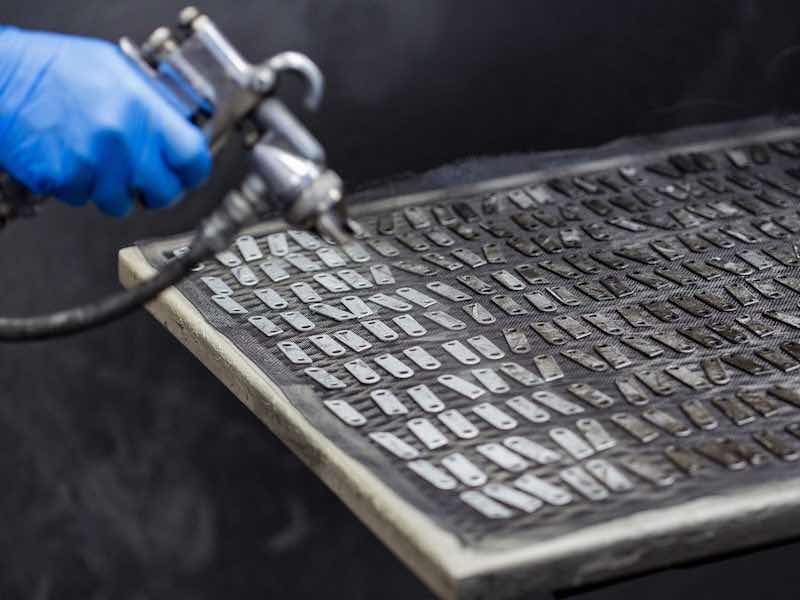 RIE coats billions of fasteners, bolts, nuts, and other major components for the agriculture, wind and solar, recreation, military, and heavy equipment industries.The companies that RIE is looking to acquire must have a “problem-solving DNA” in their makeup, Warne says, and be more willing to take an engineering approach to apply coatings.
RIE coats billions of fasteners, bolts, nuts, and other major components for the agriculture, wind and solar, recreation, military, and heavy equipment industries.The companies that RIE is looking to acquire must have a “problem-solving DNA” in their makeup, Warne says, and be more willing to take an engineering approach to apply coatings.
“We’re talking about coating the impossible,” he says. “We look for stuff that, quite frankly, a lot of our competitors say, ‘This is not in our valley; maybe call RIE.’ We want companies that do things a little bit unique and are capable of having an engineering and a problem-solving view.”
Another component of RIE’s expansion plan — aside from finding operations with $5 million to $50 million in sales — is to move into other areas of the U.S. and not just stay in the Midwest with their plants in Minnesota and Iowa. Warne says they are perceived as an upper Midwest company, and he is currently in discussion with a few finishers in the Southeast.
“Our interest is in geographically expanding,” he says. “We’ve added salespeople in the South and in the Northeast, and we hear people say, ‘You’re serving me well here in Florida, but I ship across nine states to you, so why don’t you open something closer.’ We’re looking at a couple of facilities in the Southeast for that exact reason.”
Founded as Recreational and Industrial Engineering
Engineering has been a hallmark of RIE since it was founded in 1987 with the original name Recreational and Industrial Engineering. It was started by Randy Hanson, who began his career in the coating business in the U.S. Air Force corrosion control division. His work centered on developing new dry film lubricants for pistons and other engine parts.
Hanson founded RIE by initially servicing military contracts. The company quickly evolved as RIE and began helping large, non-automotive companies implement the use of coatings to greatly enhance the products they are manufacturing.
That expertise continues today, where in the high-strength fasteners market, many manufacturers are turning away from traditional zinc plating due to adverse drawbacks of the process.
High-Value Alternative Zinc/Aluminum Flake Coatings
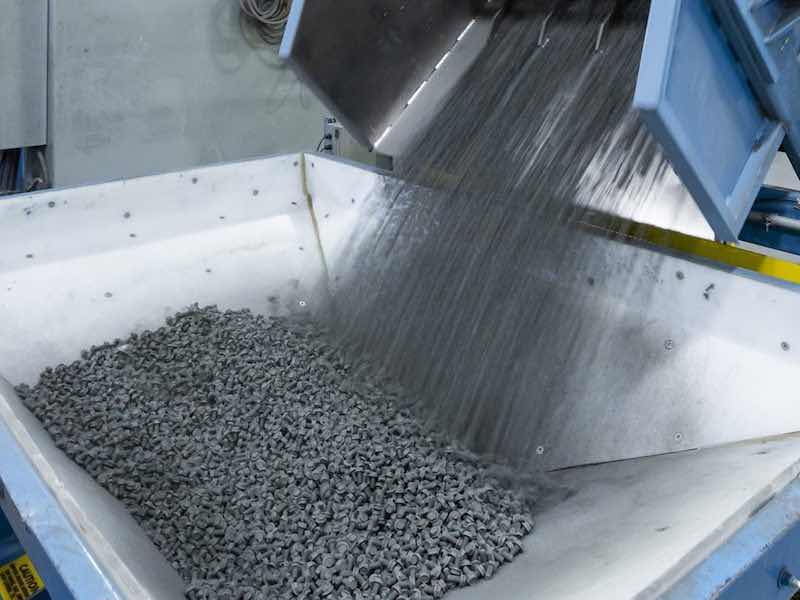 While process improvements can be made to avoid some of these problems — in addition to other contributing factors such as tensile stress and susceptible material — Warne says customers are seeing high value in an alternative coating process such as a zinc/aluminum flake coating system.
While process improvements can be made to avoid some of these problems — in addition to other contributing factors such as tensile stress and susceptible material — Warne says customers are seeing high value in an alternative coating process such as a zinc/aluminum flake coating system.
The Zn/Al process does not encounter the same challenges that zinc plating presents, and many advantages of the coating system include satisfying appearance expectations, functionality, customization, corrosion resistance, and time savings.
After processing with the zinc flake system, fastener components can resemble the same shiny silver appearance that zinc and clear plating techniques would achieve.
To meet functionality needs, Director of Engineering Wyatt Bauer says lubricants can be integrated with this coating system to provide and maintain uniform coefficients of friction. Another function of the coating that helps differentiate it between plating techniques is the coating durability, as zinc plating is often susceptible to acidic and basic chemicals as well as temperature variation.
However, the zinc flake systems can be quite chemically resistant as well as unaffected by high temperatures over 500°F/260°C. Topcoats used in zinc flake coating systems provide an excellent barrier for galvanic corrosion, i.e., a reaction between dissimilar metals. In outdoor applications, UV-stable topcoats can be applied to prevent degradation of the coating system.
Bauer says one major component of zinc plating that leads to the search for an alternative is time. Zinc plating requires an abundance of time baking to ensure hydrogen embrittlement risk is reduced.
“This time can be costly when having to bake parts for 24 to 48 hours to meet certain specifications,” he says. “The zinc flake coating system has baking steps that take only a matter of minutes and take place in the process and do not impede the ability to process parts in a timely manner.”
Investing in Engineering Has Been a Success
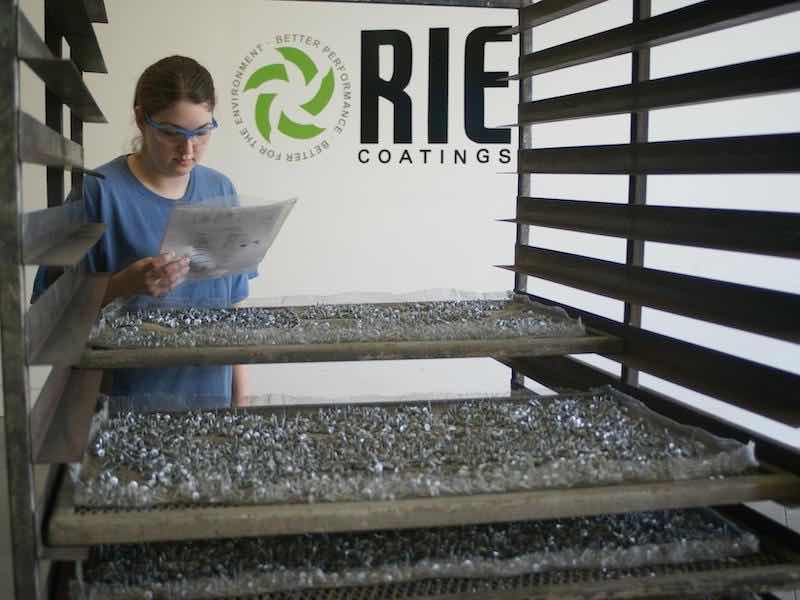 Investing in engineering has elevated both support and new opportunities for RIE Coatings and its ability to cater to a wide variety of customers and various part dimensions, shapes, and sizes. A shining example of this revolves around washers, specifically one of the drawbacks that are very prevalent with this type of part.
Investing in engineering has elevated both support and new opportunities for RIE Coatings and its ability to cater to a wide variety of customers and various part dimensions, shapes, and sizes. A shining example of this revolves around washers, specifically one of the drawbacks that are very prevalent with this type of part.
“Washers tend to stick and nest to each other during bulk processing due to the flat surfaces that come into contact,” Bauer says. “This application normally requires zinc flake coatings to be spray applied.”
RIE developed a technique that allows them to bulk process washers in many sizes while reducing scrap or fallout rates from upwards of 25% to less than 1%. Bauer says continuous reinvestment in their engineering team both solves longstanding processing problems and opens new opportunities for product enhancement.
Warne says only 5% of their work is automotive related, and so RIE has been able to avoid the slump around that industrial sector with customers in agriculture and recreational vehicles. But the work they do in automotive is very niche to that particular OEM.
“For the automakers, it may be one part on a vehicle,” he says. “Our competitors may be doing every M-10 and down fastener on a pickup, but that’s not us. If they’ve had problems, we’ll take care of that problem. We’ve protected ourselves, and it’s maybe not the glamorous big volume shot, but we tend to be very particular in solving issues and building loyalty that way.”
Recent News on Acquisition
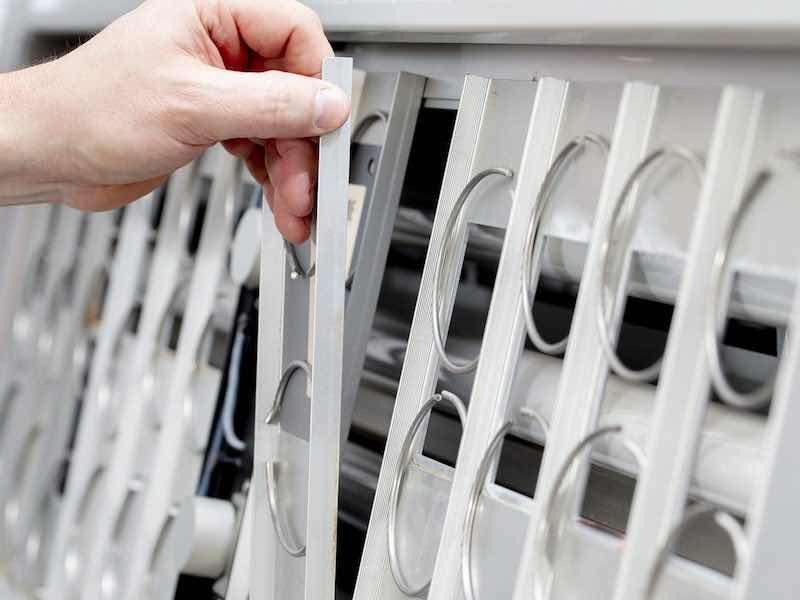 Led by Warne, RIE’s management team purchased the company in 2022 and also brought on PNC Mezzanine Capital as a junior capital partner to help manage the growth.
Led by Warne, RIE’s management team purchased the company in 2022 and also brought on PNC Mezzanine Capital as a junior capital partner to help manage the growth.
“RIE is a great platform investment with an experienced management team, strong value proposition for customers and vendors, and multiple avenues for growth and expansion,” says Doug Brosius, Partner at PNC Mezzanine. “We are excited to provide capital, resources, and expertise to support management to execute their strategic growth initiatives.”
RIE opened its Iowa location in Dubuque in 2017 to help serve customers in that region, and the successful expansion is what is giving Warne and the company’s team the motivation to seek further expansion outside of the region.
PNC’s Different Approach
Having PNC Mezzanine Capital as a partner has been an added benefit, Warne says, compared to traditional private equity firms.
“PNC Mezzanine Capital’s approach was a little bit different,” he says. “They not only supported us, but since they are not really private equity in the traditional sense, they are looking for kind of particular bespoke companies and then use us as a platform to find other like-minded companies and grow. It feels a little bit more like private ownership, but with the benefit of PNC Mezzanine Capital’s resources.”
Visit https://riecoatings.com





